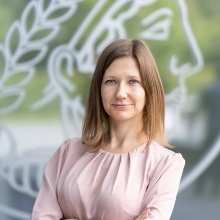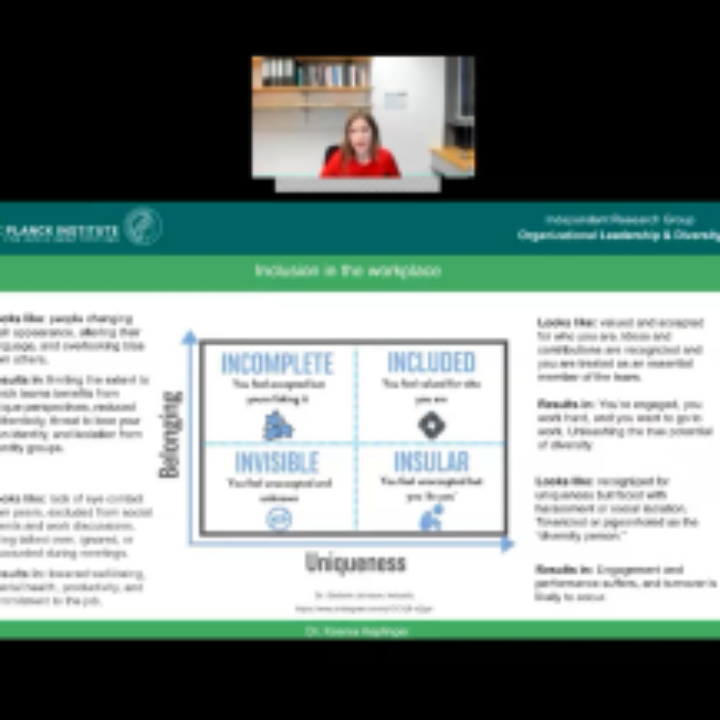What is the true potential of diversity and inclusion? - Dr. Ksenia Keplinger spoke about this at the invitation of Prof. Monilola Olayioye, Vice Rector for Early Career Researchers and Diversity at the University of Stuttgart. Around 70 people took part in the online lecture on December 14. They continued to engage in discussion even after the event. Keplinger is a junior research group leader at the Max Planck Institute for Intelligent Systems. There she is responsible for the area of organizational leadership and diversity. As an economist with a focus on financing and controlling, as well as professional experience in the IT industry, she has a specific perspective on the topic. In her presentation, she also pointed out the economic benefits of companies relying on diverse team structures. It has been proven that this not only increases the well-being, creativity and thus productivity of employees, but also the profits to be made, including an image boost. Without neglecting social factors, Keplinger succeeded in freeing the buzzword "diversity" from moralizing connotations and highlighting it as an indispensable building block for sustainable companies.
What is this potential, which is usually far from being exhausted? - Diverse people can bring a variety of perspectives to the table. In a diverse team, this leads to problems being solved more quickly. Those who experience that they are allowed to contribute their own perspective equally and are valued in their own uniqueness work with more motivation, more health and more success. Keplinger cited helpful statistics in this regard. Start-ups in which women are also part of the founding team have more success with less financial input. A company that makes it visible that different people work there is also more attractive to a larger pool of potential new employees. This means that if, for example, someone sees that no one of his or her own skin color works at the future employer before applying, the potential for identification is reduced, and with it the likelihood that an application will be made at all. This means that a large number of top employees are lost.
"Diversity is not about how we are different. Diversity is about embracing the uniqueness of the other," Keplinger quoted author and speaker Ola Joseph. He said that before there can be an acceptance of the other or others, an inclusion, one must nevertheless become aware of differences and also one's own stereotyping. "Diversity" refers to all fields in which people can differ - age, gender, sexual orientation, nationality or health. Lifestyle" is also a differentiating characteristic, visible in the different values according to which people live. For Keplinger, the opposite of diversity, uniformity, would result in a rather boring world: "Everyone around me would be just like me. In this world, the potential of diversity would not be exploited. The individual pieces of the puzzle with which Keplinger compared the diversity of people only add up to a successful whole when put together.



